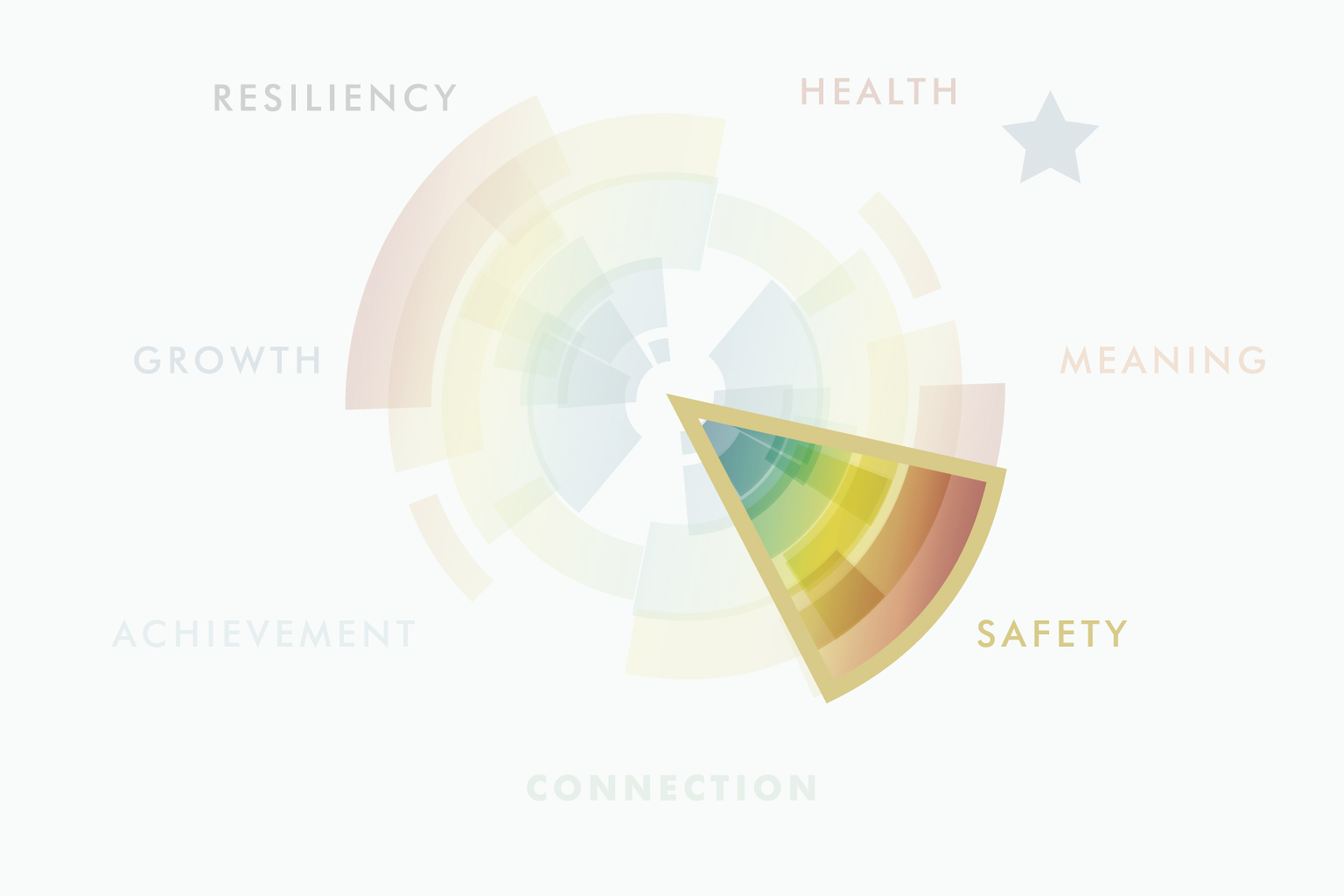During the COVID-19 pandemic, people spent a lot of time isolated and indoors, which helped foster an environment where some people now feel lonelier than ever. The result is a loss of social connectedness—the degree to which people feel the social connections and relationships in their lives to satisfy their wants and needs. When social…
Your Welcoa membership has expired.
Cultivate Physical and Psychological Safety in Your Workplace
SAFETY: Knowing that you are safe from physical and psychological harm at work. Feeling secure enough to take calculated risks and show vulnerability. Free of concern about meeting basic life needs.
Why is SAFETY critical to making the workplace whole again?
A successful wellness strategy has to lay the groundwork for employees to feel physically and psychologically safe. Making safety part of the everyday culture is something every organization should be working towards. Currently, the typical risk management and physical safety protocols are what come to mind, but that is not the only focus. To be a physically and psychologically safe organization, leaders have to ensure that trust is at the foundation of every wellness program across the board. This means that employees feel secure enough to express themselves, take calculated risks and show vulnerability at work. Genuine trust develops as people form authentic and supportive relationships with one other. Do you see employees are able to express their thoughts and views in your organization?
We are living and working in unprecedented times right now, resulting in a high degree of change. It is important that organizations learn how to communicate with their people about the pandemic and broader social climate in a way that maintains transparency and trust. If your leaders are spending a lot of time worrying about whether employees are getting their work done while at home, it is likely you have little trust in your employees. If your employees are receiving mixed messages about work expectations or protocols, there is a good chance that they don’t trust your leadership. More to the point, employees operating where safety is insignificant fosters behaviors such as keeping to themselves or even going with the flow to avoid a dispute with higher-ups.
How does fostering SAFETY affect the working human?
When it comes to physical health and safety, it is important to create protocols that protect employees from exposure to potentially dangerous work environments such as exposure to COVID-19. Always keep in mind that it is important to balance maintaining psychological safety and trust. According to a recent WELCOA blog post by Organizational Psychologist Jeffrey Pfeffer, employee surveillance companies are thriving amidst our uncertain economy. Why? Some organizations are demanding tools for monitoring how remote employees spend their time including monitoring software and user behavior analytics. As we look to the future, it is important to understand the consequences of a hyper-monitored workforce. Pfeffer lays out research that highlights the ways surveillance and monitoring not only diminish trust, but also can create stress and other health problems.
No conversation about psychological safety is complete without consideration for inequity in the workplace. The reality is that we live in a country where many minority groups continue to assimilate to fit in with the majority culture. Gender non-conforming employees, women and People of Color often code switch—or mask their authentic selves—in an effort to be accepted as part of a work team or viewed as more professional. What is the psychological impact of a considerable proportion of our workforce not being allowed to show up as their true, authentic selves? In a recent WELCOA Pulse webinar led by Human Resources diversity & inclusion expert Israel Greene, he spoke about the discrepancy between experiencing one’s natural state and adaptive state resulting in depression and anxiety. It is hard to foster trust without acceptance.
What are the first steps to improving SAFETY in the workplace?
Here are four strategies for improving psychological safety and trust from WELCOA’s Toolkit for Navigating the COVID-19 Pandemic and beyond:
- Admit When You Don’t Know. If you don’t have all the information, describe how you are working to get the information and how you will communicate it.
- Be Transparent. If you need to change directions on a previous decision, admit that it wasn’t the solution you had hoped for and discuss how you will move forward.
- Listen. When people feel heard they feel valued. Involve employees. Listen with an open mind even if you don’t ultimately choose to follow a suggestion made by an employee.
- Don’t Micromanage. Be clear on specific tasks and deadlines, then trust employees to handle it on their own.
How is WELCOA implementing strategies for SAFETY in our organization?
WELCOA was put to the test when it comes to the four strategies stated above. After working remotely since the beginning of March, we communicated a return to work date for June. We implemented a return to work policy to maintain physical safety and implemented all recommended safeguards to keep our environment as safe as possible. We were so excited to be back together, and it felt like the right decision. However, after several weeks, the COVID-19 rates in Nebraska where we are headquartered began to skyrocket. It became clear that we as a state and we as an organization may need rethink our approach. The reality was that, while everyone wanted things to get “back to normal”, the biology of the virus had not changed. As an organization, WELCOA had to admit that there was too much risk in our returning to the office. We were more than effective working remotely, and that was the best way for us to keep everyone safe and productive. It can be difficult to admit that an early decision may not have been the right one and to change course as a result. But having agency to make these kinds of choices is imperative for maintaining trust and physical safety for our team.
What are WELCOA resources that support SAFETY?
- Watch the Pulse webinar with Israel Greene cited in this article here.
- Mark your calendar for Israel Greene’s full Workplace Diversity course launching on the WELCOA Institute in November.
- Gain access to the full WELCOA’s Toolkit for Navigating the COVID-19 Pandemic here.
To read all posts in the Definition of Wellness series, visit the below links:
- Making the Workplace Whole: Meeting Basic Human Needs
- How Better Connection Can Make the Workplace Whole
- What is the Meaning of All of This? Strategies for More Purpose at Work
- Removing Barriers in the Workplace to Help Employees Achieve
- Why Growth Opportunities Give Employees a Reason to Show Up
- Forget Stress Management: The Future of Work Requires Resilience
- Why Traditional Health Still Matters, But We Have to Get It Right!

Sara Martin, MS // CEO • WELCOA
Sara has launched award-winning wellness programs and engineered work environments to create cultures of health across multiple industries. At WELCOA, her role is to ensure you continue to have access to the best products and information so you can achieve your professional and personal wellness goals.




